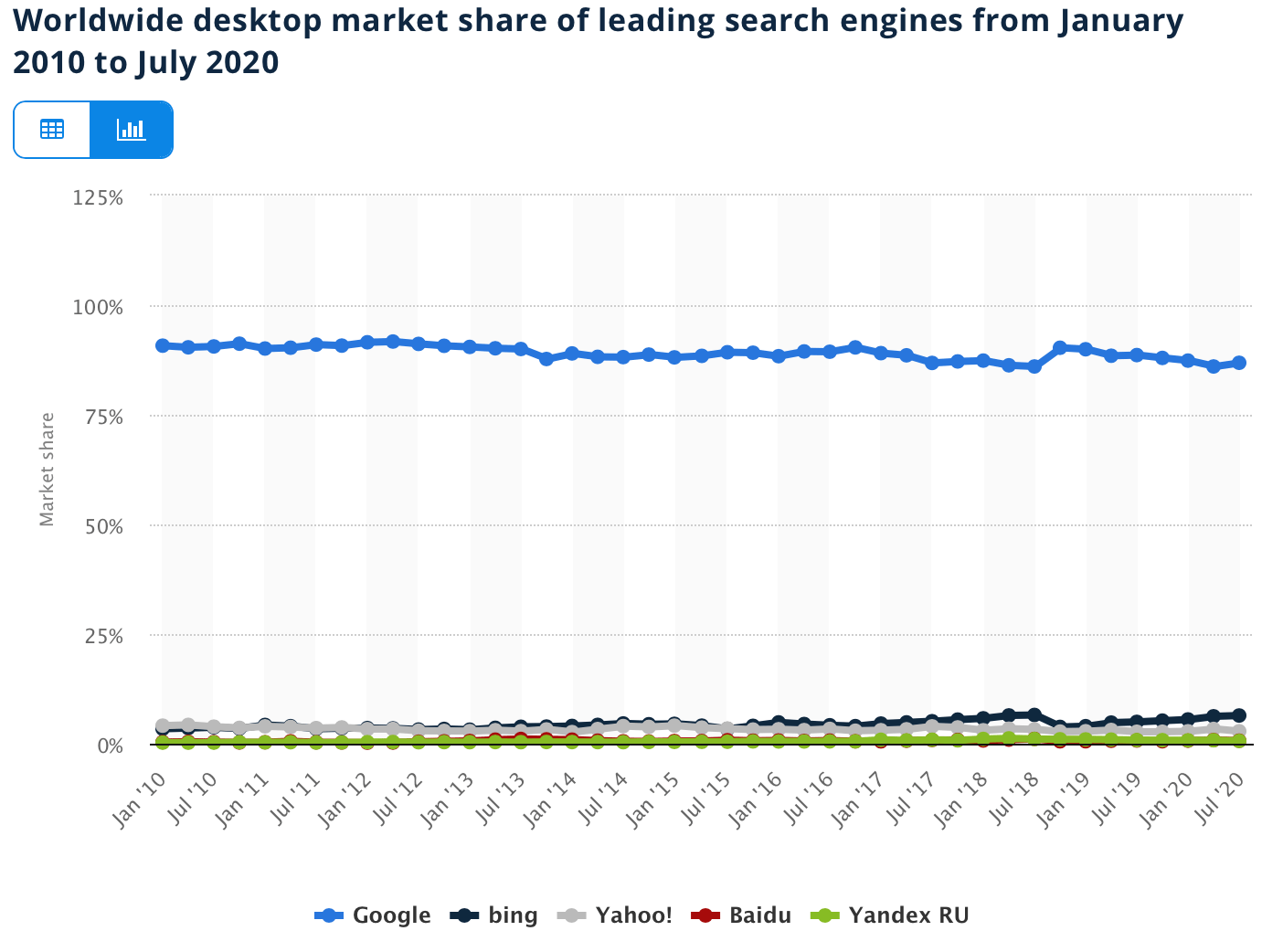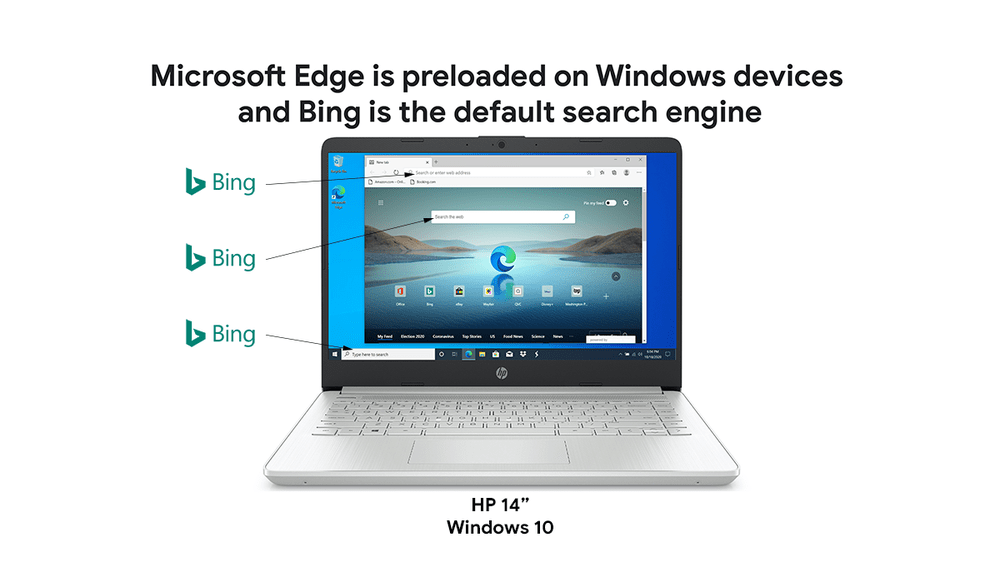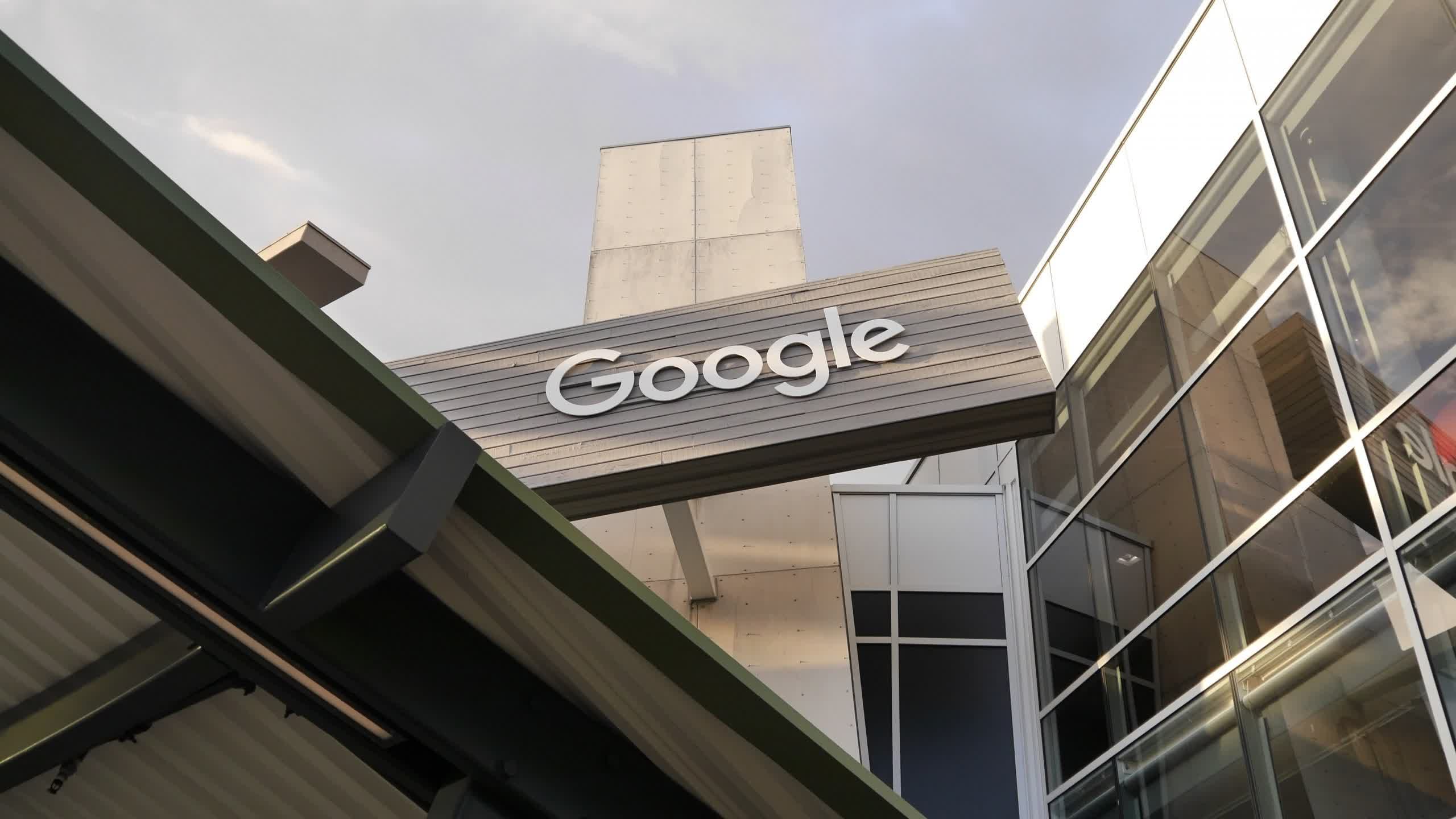A hot potato: A long awaited lawsuit against Google is now official, with US lawmakers looking to strike at the heart of a tech company they believe has grown too big and powerful. This is expected to be a long battle that could see the search giant broken up, as "nothing is off the table."
It's no secret that Google has been in the crosshairs of US regulators. Back in July, when the House antitrust subcommittee grilled the Big Tech CEOs, Google's Sundar Pichai was not the most questioned of the bunch – but at 61 questions, he came pretty close to Facebook CEO Mark Zuckerberg who had to answer 62 inquiries.
Today, the U.S. Department of Justice filed an antitrust lawsuit against Google alleging the search giant has been engaging in anticompetitive practices to protect monopolies it has built in the general search and search advertising industries. The primary concern outlined in the filing is that it has a history of leveraging its dominant position in one market to gain an unfair advantage in another.
The case has been more than one year in the making as regulators were initially looking to team up with 50 state attorneys general, as they too wanted to address the same concerns. Some state attorneys general are now expected to file separate lawsuits against Google, while 11 have joined the DOJ's case and several more are expected join in the coming months.

Google is a behemoth with an 80 percent market share in search across all platforms, and more than that when we consider the mobile search market. The DOJ lawsuit takes issue with the way Google acts as a gatekeeper with its Chrome browser and Android operating system, using them to keep competitors out. Lawmakers are also worried about the way Google Search is preloaded on Android devices from almost all manufacturers via exclusionary contract agreements.
The lawsuit was welcomed by small search providers. For instance, DuckDuckGo CEO Gabriel Weinberg who said via Twitter: "we're pleased the DOJ has taken this key step in holding Google accountable for the ways it has blocked competition, locked people into using its products, and achieved a market position so dominant they refuse to even talk about it out loud."
The DOJ believes that in doing all this, Google "substantially" harmed competition by making it difficult for alternative search engines to make a dent into the market. This is also a particularly hot subject for regulators in the EU, who are closely monitoring an auction system implemented by Google for small search providers who wish to be presented alongside its own offering on a choice screen during Android setup.

While the lawsuit seems to be focused mainly on Google's search business, the DOJ hints that more allegations could be added at a later time, possibly in a separate lawsuit.
The most recent report on the DOJ's broad antitrust investigation is a sign of things to come for companies that are as big as Google, as "nothing is off the table" when it comes to the specific remedies that might be applied to them in the future.
Naturally, Google is far from content with the development, and Senior VP of Global Affairs Kent Walker wrote a statement on The Keyword to express the company's position in the matter. He describes the DOJ's lawsuit as "deeply flawed," and maintains the company's long-held position that people flock to Google's search engine because it provides great value to them.
As for the potential impact of the lawsuit, Walker says the lawsuit wouldn't benefit consumers and instead "prop up lower-quality search alternatives, raise phone prices, and make it harder for people to get the search services they want to use."
Walker has provided what he believes is a rebuttal of DOJ's main complaint in the new lawsuit, and explains that Apple, Microsoft, Samsung, and others operate the same "eye level shelf" space as Google where they control what services are displayed during initial device setup, whether it is a smartphone, tablet, laptop, desktop, or anything in-between.

Microsoft is given as a prime example where Google Chrome and services like Google Search don't come preloaded on Windows 10 devices. Instead, the Redmond giant bakes in the Microsoft Edge browser with every Windows installation, while its Bing search engine is the primary search option.
As for the exclusionary agreements Google makes with Android device makers, Walker explains they're what enables the company to distribute its mobile operating system for free, leading to cheaper devices that reach more consumers. "But even with these agreements", he adds, "carriers and device makers often preload numerous competing apps and app stores."
Walker disagrees with the idea that consumers aren't able to easily change their search engine to something of their choosing, and notes that plenty of alternative services and apps that don't come preloaded on phones manage to grow a large user base, with notable examples being Twitter for news, Expedia for travel, and Instagram for product recommendations.

The way Google sees it is that while it may dominate in the general search market, people search for specific things on different platforms. For instance, online shoppers tend to search Amazon first to get an idea about their options. The search giant is confident the lawsuit won't hold in court, and these arguments are a good preview of how it will attack the DOJ's complaints.
In a statement, Attorney General William Barr noted that 25 years ago, the DOJ sued Microsoft and enabled competitors like Google to "grow from a small startup to an Internet behemoth. Unfortunately, once Google itself gained dominance, it resorted to the same anticompetitive playbook. If we let Google continue its anticompetitive ways, we will lose the next wave of innovators and Americans may never get to benefit from the "next Google."
